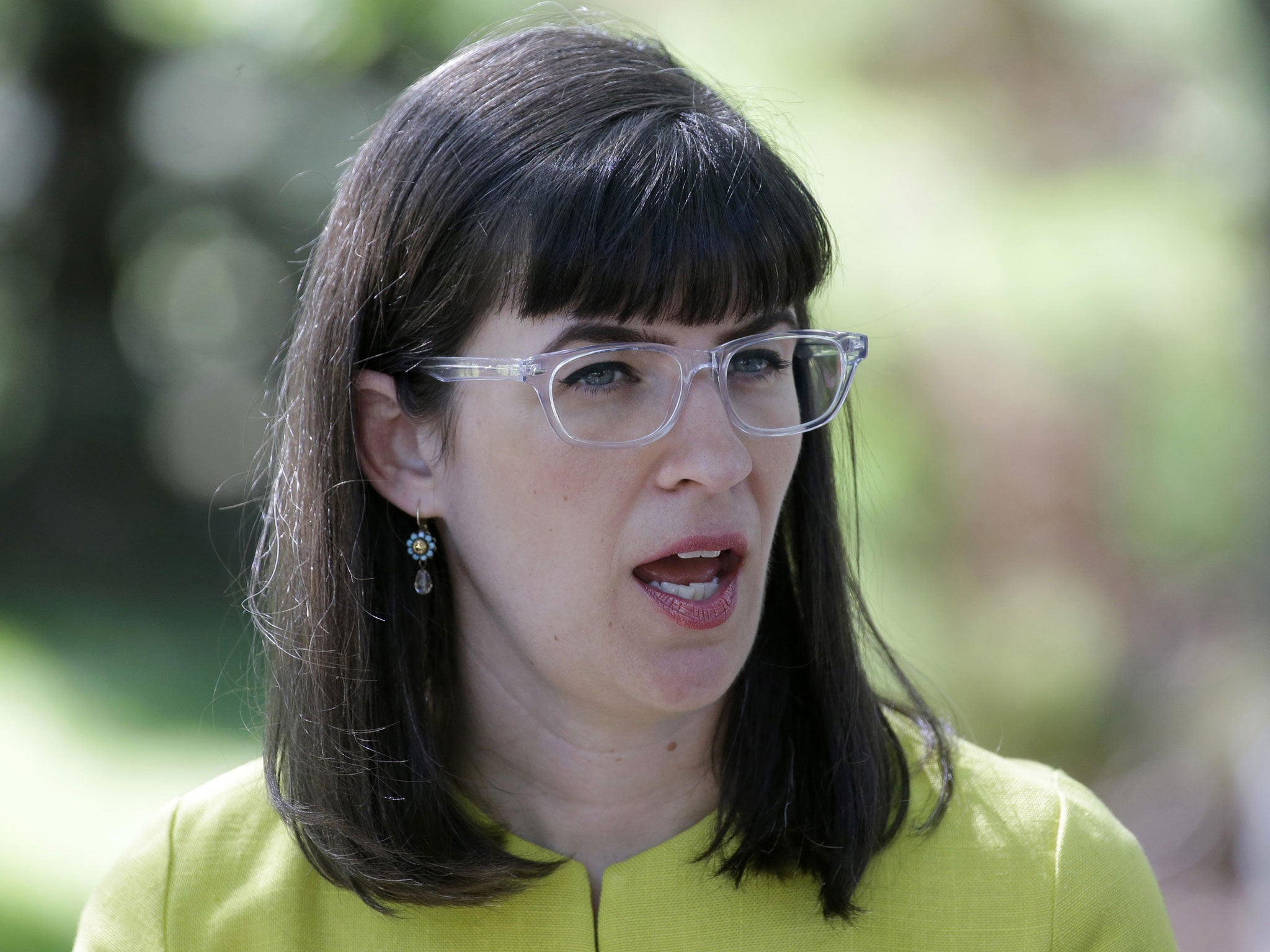Mormon church excommunicates women's rights activist Kate Kelly because of her campaign for female priests
Church 'disciplinary meeting' found her guilty of apostasy for opposing church practices

Your support helps us to tell the story
From reproductive rights to climate change to Big Tech, The Independent is on the ground when the story is developing. Whether it's investigating the financials of Elon Musk's pro-Trump PAC or producing our latest documentary, 'The A Word', which shines a light on the American women fighting for reproductive rights, we know how important it is to parse out the facts from the messaging.
At such a critical moment in US history, we need reporters on the ground. Your donation allows us to keep sending journalists to speak to both sides of the story.
The Independent is trusted by Americans across the entire political spectrum. And unlike many other quality news outlets, we choose not to lock Americans out of our reporting and analysis with paywalls. We believe quality journalism should be available to everyone, paid for by those who can afford it.
Your support makes all the difference.The Mormon church has excommunicated the founder of a prominent women's group, in a rare move that brings down the harshest punishment available on an adherent who created an organisation and staged demonstrations in a push for women to join the faith's priesthood.
The ousting of Kate Kelly marks one of the most significant excommunications in recent church history and sends a warning to others publicly challenging church practice and forming groups around their cause, scholars who study Mormonism say.
"It does more than excommunicate Kelly," said Jan Shipps, a retired religion professor from Indiana who is a non-Mormon expert on the church. "It warns everybody."
Shipps said The Church of Jesus Christ of Latter-day Saints is implementing "boundary maintenance," using Kelly as an example to show people how far they can go in questioning church practices.
Kelly's former church leaders in Virginia notified her by email after holding a disciplinary hearing on Sunday and weighing the matter overnight. They found her guilty of apostasy, defined as repeated and public advocacy of positions that oppose church teachings.
Kelly's group, Ordain Women, announced the decision on Monday and released excerpts from the letter she received.
Her church leaders informed her that she can longer wear Mormon temple garments, hold positions in church or give talks during services, among other things. After one year, they will consider allowing her back, but only if she displays "true repentance" and shows she has "stopped teachings and actions that undermine the church, its leaders, and the doctrine of the priesthood," the letter said.
Kelly called the decision "exceptionally painful" and a "tragic day" for her family in an emailed statement.
She didn't attend the disciplinary hearing on Sunday, instead holding a vigil in Salt Lake City with about 200 supporters. She spoke about the possibility of not being able to fully practice the religion she's been part of since birth.
"I'm just not sure that there is something you can do to prepare yourself for a shunning like that," she said.
Excommunication is not common in the Mormon faith, reserved usually for cases where members violate the religion's moral code by having affairs, being charged criminally or committing sexual abuse, said Patrick Mason, chairman of the religion department and professor of Mormon studies at Claremont Graduate University in California. Church members being kicked out for apostasy is even rarer, he said.
Nobody has solid numbers on how many church members are ousted each year, but it is probably between 10,000 and 20,000, a fraction of the 15 million members worldwide, said Matt Martinich, a church member who analyses membership numbers with the nonprofit Cumorah Foundation.
Debra Jenson, a spokeswoman for Ordain Women, said the group is saddened but will continue to advocate. Kelly also plans to be part of the movement and work for gender equality in the church.
Kelly was one of two well-known Mormons facing excommunication. John Dehlin, an outspoken advocate for gays and the creator of a website that provides a forum for church members questioning their faith, has a meeting with a church leader in Logan on 29 June to discuss his case.
Scholars say they are the most high-profile examples of excommunication proceedings since 1993. That year, the church disciplined six Mormon writers who questioned church doctrine, ousting five and kicking out a sixth temporarily.
Mormon officials haven't discussed Kelly's case specifically. They have said they are open to questions and sincere conversations about the faith but that some members' actions "contradict church doctrine and lead others astray."
The church doesn't usually discipline people who question or disagree with church doctrine or practices — thousands express such views online every day, Mason said. But the church seemed to take umbrage with the way in which Kelly created a movement and courted media coverage for her demonstrations, the professor said.
"It's not about policing thoughts, it's more about public expressions and public movements," Mason said.
Kelly said she stands behind everything she has done since forming Ordain Women in 2013, which advocates for gender equality in the faith with the ultimate goal of allowing women in the lay clergy.
Women can hold many leadership positions in church but aren't allowed to be bishops of congregations or regional presidents of stakes, which are made up of a dozen congregations, known as wards. The church's highest leaders, called the Quorum of the Twelve Apostles, are also all men. The church says only men serve in the lay clergy as prescribed in "the pattern set by the Savior when it comes to priesthood ordination."
The Associated Press
Join our commenting forum
Join thought-provoking conversations, follow other Independent readers and see their replies
Comments